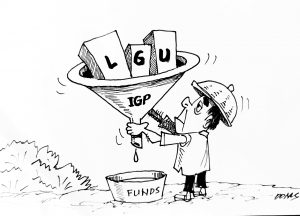Local government units are important income-generating entities. They play a crucial role in the economic development of their respective regions, as they have the power to create and implement policies that promote business growth and attract investments.
One of the primary sources of income for local governments is through taxation. They have the authority to impose various taxes, such as property tax, business tax, and franchise tax, among others. By levying these taxes, local government units generate revenue that can be used to fund public services such as infrastructure development, healthcare, education, and social welfare programs.
Apart from taxation, local government units engage in income-generating activities such as providing basic services, collecting fees, and managing assets. For instance, they can charge fees for permits and licenses, thereby generating income to finance the operations of their respective offices. Local governments also manage public resources and properties, such as public lands, marketplaces, and entertainment venues, and can generate revenue through leasing or renting these assets. Moreover, they may create business enterprises such as public transportation systems, utilities, and tourism services, generating additional income for the local government.
With these in mind, local government units can engage in public-private partnerships (PPP) as a means of further generating income. A PPP allows the government to collaborate with private entities in providing public services and infrastructure, while also generating revenue. For example, a local government unit can partner with a private company to build and operate a toll road, with the government receiving a share of the toll revenues. This form of collaboration not only generates income for the government, but also enhances efficiency and service delivery.
Local government units, then, are essential income generating entities that play a vital role in the economic development of their regions, hence their need to activate. Through taxation, fees, managing assets, and engaging in public-private partnerships, they can generate income to fund public services and infrastructure development. By maximizing their revenue sources, local government units can contribute significantly to the overall well-being and progress of their communities.




